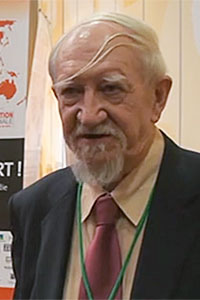
With likely calls for death sentences for the perpetrators of the deadly explosion at Erawan shrine, Thailand’s decision will come under world scrutiny.
Given the current standing on death sentences, what are the options?
Like all member countries of the United Nations, Thailand must report to the UN Human Rights Committee in Geneva. The affirmation of the right to life is in the Universal Declaration of Human Rights, the basis for life and freedom in the modern world.
In 2011, Thailand first reported to an assembly where recommendations were given to countries that are still maintaining the death penalty. A spectrum of the views could be divided into two main tracks: The recommendation of Uruguay which makes the abolition of the death penalty a free contractual choice called ICCPR-OP2; and the recommendation by Brazil to consider abolishing the death penalty.
The response from Thailand to the recommendations is of great interest: A Thai government spokesman remarked on the idea of death penalty abolition with the words:
“Thailand is embarking on a process of studying the possibility of abolishing the death penalty, in consultation with the public and relevant stakeholders. However, pending the completion of this consultation process, Thailand is unable to accept recommendations to review or amend the law in regard to capital punishment, place a moratorium on, or abolish the death penalty.”
In brief, the recommendation of Brazil to consider abolition is acceptable while the recommendation of Uruguay to actually renounce the death penalty is rejected.
True to its word, Thailand has indeed considered abolition as shown by two extensive documents.
The first is a study carried out by academics on behalf of the Department for the Defence of Liberties and Freedoms of the Ministry of Justice entitled “Project on the Possibility of Abolishing the Death Penalty according to the Second National Human Rights Plan”. The second is a study made by the National Human Rights Commission, entitled “The Death Penalty in Thailand”.
The studies show Thailand is among the minority of countries which still retain the death penalty — 58 countries as opposed to the 140 which are abolitionist.
Four major arguments for for abolition are identified:
The death penalty conflicts with the most basic human right — the right to life;
The majority of those condemned to death are the poor, who lack the means to employ an effective legal defence;
The justice system applying the death penalty is defective; and
The death penalty is not an effective deterrent to crime.
As well as these is the possibility that innocent people are executed.
The study of the Department for the defence of Liberties and Freedoms, takes an academic stand, a study for its own sake, revealing its origin and the uncertainty of its mandate, in brief the lack of political enthusiasm and of a firm mandate from political masters. By contrast, the study issued by the National Human Rights Commission is strongly oriented to achieving change rather than mere understanding.
It makes an interesting identification of abolition of the death penalty as an expression of democratic power.
It bases itself on a concept of penal practice which gives priority to the rehabilitation of condemned prisoners and their return to society. It bluntly accepts that capital punishment is not effective in controlling crime.
So there we are, well spiked on the horns of dilemma. We have considered, so that a Thai delegation can no longer take refuge in the delaying tactic of pleading pause for reflection.
In the next Universal Periodic Review by the Human Rights Council, we expect there will be even increased recommendation for the definitive step of acceptance.
But the outcome is likely to be another delay tactic, a plea that Thailand must wait for the approval of popular opinion.
As no effort has been made to launch an effective campaign to engage popular opinion, abolition will be further delayed forever and a day.
To return to the question posed at the beginning of this article, what are the options?
The first is to impose a lesser sentence than capital punishment.
But for Thai courts which have imposed a 60-year sentence for an obscure charge of lese majeste, what leeway is there for a heavy sentence for mass killing?
The only solution is acceptance and ratification of ICCPR-OP2 when Thailand may proceed with exactly the same measures of punishment, excluding the death penalty.
Danthong Breen, PhD, is senior adviser and head of Death Penalty Project, Union for Civil Liberty.
